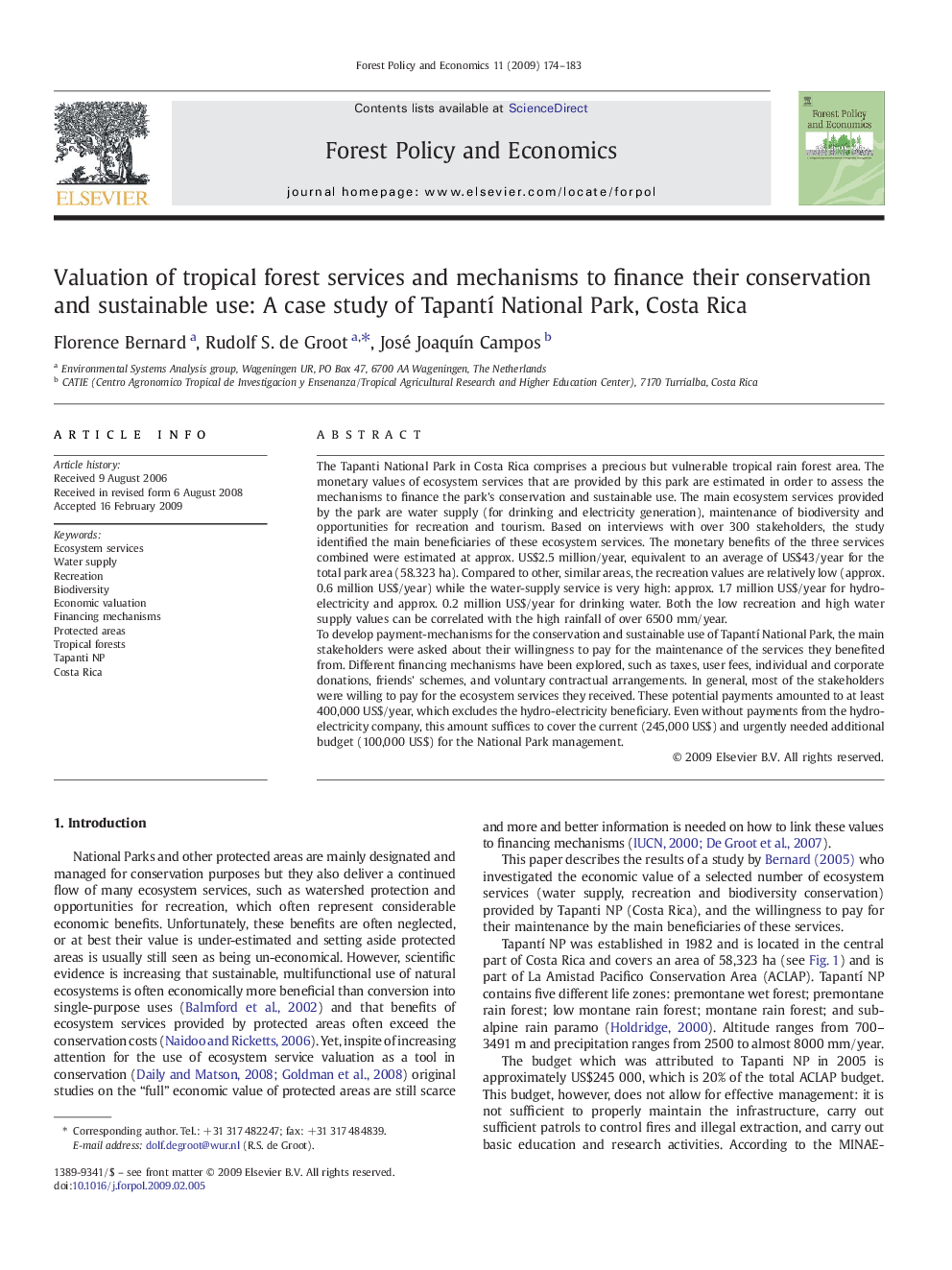| Article ID | Journal | Published Year | Pages | File Type |
|---|---|---|---|---|
| 92175 | Forest Policy and Economics | 2009 | 10 Pages |
The Tapanti National Park in Costa Rica comprises a precious but vulnerable tropical rain forest area. The monetary values of ecosystem services that are provided by this park are estimated in order to assess the mechanisms to finance the park's conservation and sustainable use. The main ecosystem services provided by the park are water supply (for drinking and electricity generation), maintenance of biodiversity and opportunities for recreation and tourism. Based on interviews with over 300 stakeholders, the study identified the main beneficiaries of these ecosystem services. The monetary benefits of the three services combined were estimated at approx. US$2.5 million/year, equivalent to an average of US$43/year for the total park area (58.323 ha). Compared to other, similar areas, the recreation values are relatively low (approx. 0.6 million US$/year) while the water-supply service is very high: approx. 1.7 million US$/year for hydro-electricity and approx. 0.2 million US$/year for drinking water. Both the low recreation and high water supply values can be correlated with the high rainfall of over 6500 mm/year.To develop payment-mechanisms for the conservation and sustainable use of Tapantí National Park, the main stakeholders were asked about their willingness to pay for the maintenance of the services they benefited from. Different financing mechanisms have been explored, such as taxes, user fees, individual and corporate donations, friends' schemes, and voluntary contractual arrangements. In general, most of the stakeholders were willing to pay for the ecosystem services they received. These potential payments amounted to at least 400,000 US$/year, which excludes the hydro-electricity beneficiary. Even without payments from the hydro-electricity company, this amount suffices to cover the current (245,000 US$) and urgently needed additional budget (100,000 US$) for the National Park management.
